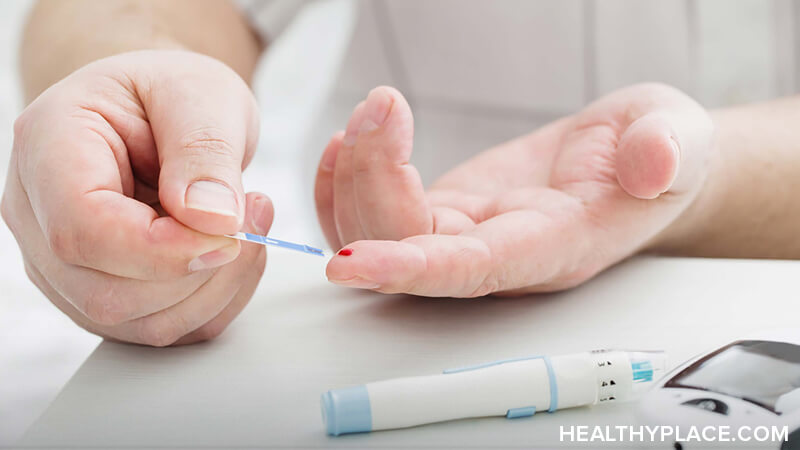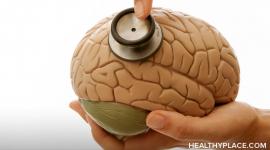What Is Diabetes?

What is diabetes? is a very common question. More than likely, you’ve heard quite a bit about the disease yet still wonder what diabetes is. If so, you’re not alone, for diabetes is complex. Answering this question is important because some types of diabetes are preventable and knowing the definition of diabetes can help you stay healthy ("What Causes Diabetes?"). Even if you or a loved one already has it, the more you know about what diabetes is, the better you can manage it for a quality life.
The simplest diabetes definition is blood sugar levels that are too high. The official term for this condition is hyperglycemia. While this is indeed what diabetes is, it fails to fully answer the question what is diabetes?
Diabetes is actually a group of diseases (there are multiple types of diabetes) in which someone has problems with a hormone called insulin, blood sugar (glucose), and metabolism (how the body uses digested food for energy). Type 1 diabetes, in addition to being a metabolic disease, is also considered to be an autoimmune disease ("What Is the Difference Between Type 1 and Type 2 Diabetes?").
To understand any diabetes definition, it’s necessary to know some specific terms as well as how the body metabolizes food into energy.
What is Diabetes? Terms to Know
Important terms in understanding diabetes include:
- Glucose—blood sugar used by cells for energy; the main source of energy for the body
- Hyperglycemia—too much glucose in the blood
- Insulin—a hormone produced by the pancreas that takes glucose from the blood and escorts it into the cells as well as places extra in the liver for later release
- Insulin resistance—when the body has insulin but doesn’t use it properly
- Pancreas—the organ, tucked behind the stomach, that produces insulin and releases it into the bloodstream
- Beta cells—insulin-producing cells within the pancreas
- Liver—the organ in which insulin stores extra glucose to be released between meals when cells need energy
Glucose and Insulin: What Happens in Diabetes
When someone without diabetes eats, their body turns carbohydrates into glucose during digestion. As blood glucose levels rise, the pancreas revs up to make and release insulin. Insulin then travels through the bloodstream with the glucose to unlock the cells and let glucose pass into them.
Glucose can’t enter the cells on its own but must have the help of insulin to get in. When someone has diabetes, their body either doesn’t make enough insulin or doesn’t use insulin efficiently. Either way, sugar stays in the blood rather than going into the cells for immediate use or into the liver for storage.
Insulin is in constant demand. Blood glucose levels perpetually fluctuate, and it is insulin’s job to keep them steady. Hypoglycemia refers to low blood sugar. When hypoglycemia occurs, the body makes you feel hungry so you eat. While it waits for food, the liver releases stored glucose, and insulin delivers it to cells. If there is a problem with insulin, glucose builds up in the blood rather than flowing into cells. This is hyperglycemia, and it’s what happens in diabetes.
What is Diabetes? It’s Serious
Diabetes is hyperglycemia, but high blood sugar doesn’t do justice to a diabetes definition. In understanding what diabetes is, it’s important to look beyond its baseline definition.
Diabetes is a disease that:
- Begins at the cellular level, with improper insulin functioning
- Involves high blood sugar levels because this glucose can’t get into the cells or the liver
- Can cause dangerous health problems such as heart disease, stroke, eye problems including blindness, nerve damage, kidney damage, foot and leg problems that may lead to amputations
- Is the sixth leading cause of death in the United States
What is diabetes? Diabetes is a serious illness in which the body can’t metabolize the glucose that has been created from the digestion of carbohydrates due to problems with insulin ("Diabetes Symptoms and Signs in Adults, Men, Women and Children").
What is diabetes? A proper diabetes definition must include the fact that, while it’s serious and has no cure, diabetes can be managed and health problems prevented. The key is to monitor and control blood sugar levels to keep them on target. You can live a healthy life and be well even with diabetes ("What is a Diabetes Support Group? Where Can I Find One?").
APA Reference
Peterson, T.
(2022, January 4). What Is Diabetes?, HealthyPlace. Retrieved
on 2026, March 3 from https://www.healthyplace.com/diabetes/main/what-is-diabetes



